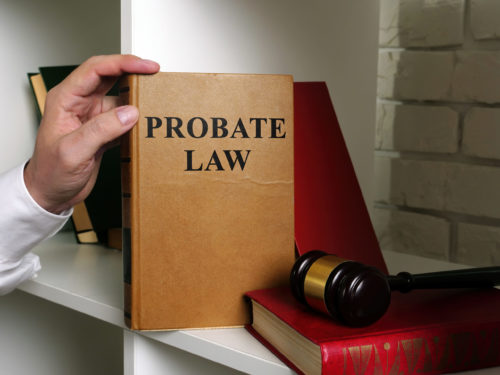Maybe you were always the one everyone expected to have a plan growing up. Maybe you were more a follower than a leader. Maybe the one you always knew you could count on to have a plan is gone. No matter what, death can hit us like a ton of bricks, whether we thought we were prepared or not. And if you’re here reading this article, you’ve likely just been hit with a ton more. Maybe you and your siblings drew straws and you came up short and now you’re the executor of the estate, and trying not to lose your mind because you don’t know what that means.
If that’s you, fear not! As a New Jersey Estate Planning Attorney, I’m here to help explain things a little better.
First Steps of The Executor
First things first, if you were named as an executor in your loved one’s will, you’ll need to go to the surrogate court and ask to be formally appointed as an executor. You can do this as soon as ten days after death, and will need to bring the will and a certified copy of the death certificate. If the will isn’t self-proving, you’re going to need two witnesses who saw the deceased person sign the will (and who signed it themselves) to appear or submit a sworn statement as well.
What If There Is No Will?
If there isn’t a will, or if the person named as executor in the will doesn’t want to step up, it’s okay! No need to panic. If that happens, the court will then appoint an administrator for you. This person takes on all of the same responsibilities as an executor, and New Jersey law allows for the surviving spouse, if any, the priority of the appointment.
What If I Don’t Live in New Jersey?
If your administrator or executor is not a resident of New Jersey, they must post a bond, unless they will state otherwise. And if you’re confused about bonds, all a bond does is protects the estate (as a kind of insurance policy) if the executor or administrator tries to steal or mismanage any estate funds.
Letters Of Testamentary
If there’s concern that the will is not valid, or someone is contesting it, the surrogate court will issue a document called “Letters of Testamentary.” This document allows an executor or administrator the ability to do the following:
- Collect, inventory, and keep safe the deceased person’s assets.
- Have assets professionally appraised, if necessary
- Pay any valid debts and taxes and
- Distribute the remaining property as the will or state law (if there is no will) directs.
Notifying Heirs and Beneficiaries
As an executor, you also must mail notice to all heirs and beneficiaries of the proceeding, and you have 60 days to do it. You are also entitled to compensation (or commission) for settling all the affairs of the estate. The commission is normally 6% of the income of the estate, plus 5% of the gross value of the estate up to $200,000. If it’s over that, you get 3.5% up to $1 million and 2% on amounts over $1 million.
So as you can see, it’s a lot to take in and a lot to do, but there is a bit of light at the end of the very dark tunnel. And in a time where everything seems dark, sometimes even the faintest bit of light is enough to brighten up the entire world.


